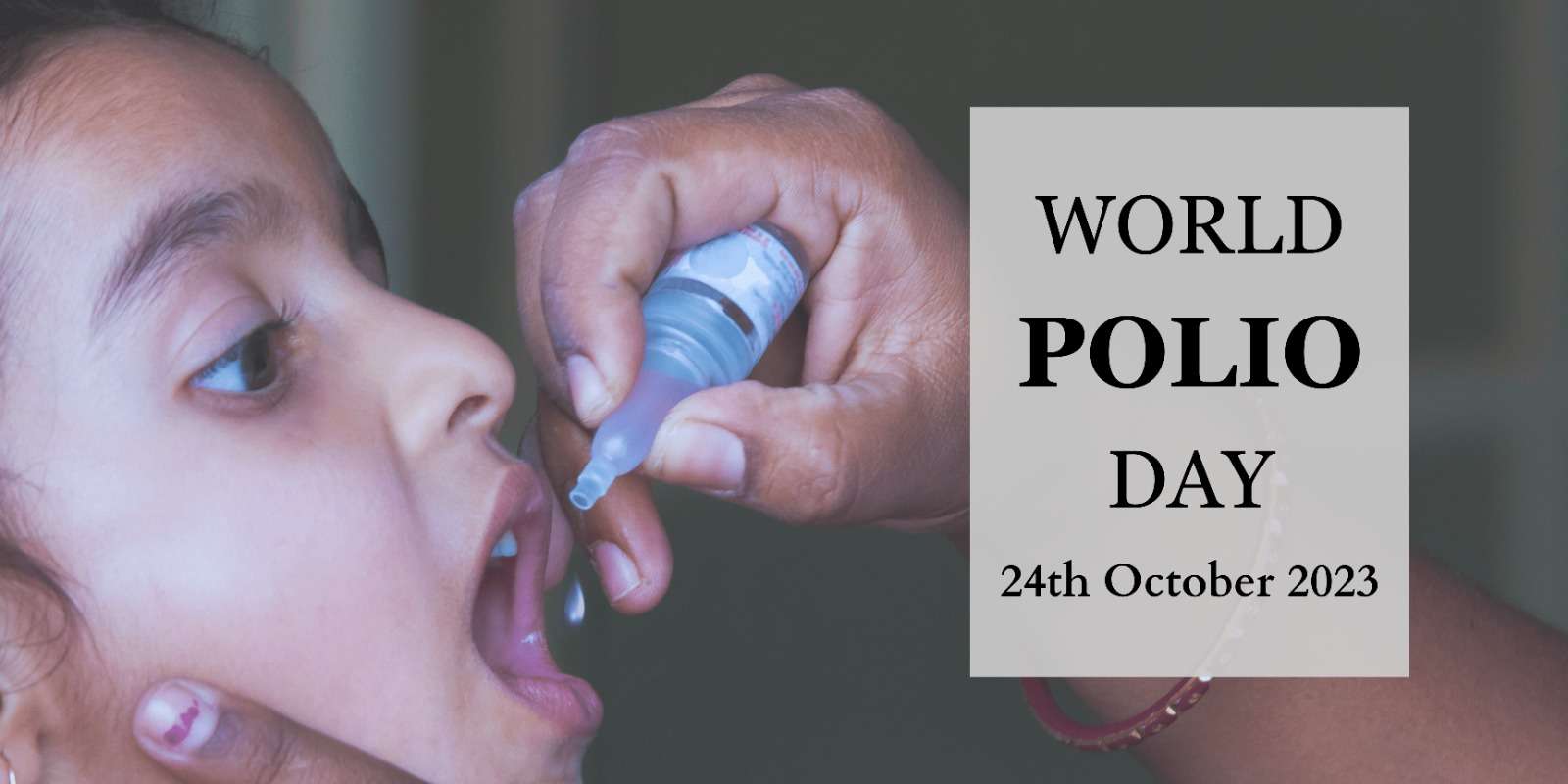WORLD POLIO DAY

World Polio Day, observed on October 24th each year, serves as a powerful reminder of the global efforts to eradicate polio, a highly infectious viral disease that primarily affects children under five years of age. The day not only commemorates the progress made in the fight against polio but also highlights the challenges that persist in eliminating this crippling disease.
History of the Day
- World Polio Day was established by Rotary International over a decade ago to commemorate the birth of Jonas Salk, who led the first team to develop a vaccine against polio in the 1950s.
- The day serves as an opportunity for the global community to renew its commitment to the eradication of polio and to celebrate the progress achieved through widespread vaccination campaigns.
Theme and Significance
- The theme for World Polio Day often revolves around “Engagement and Empowerment, Innovation and Research, Sustaining Momentum, and Solidarity.”
- It emphasizes the critical role of community engagement, innovative approaches, and sustained global solidarity in overcoming the remaining challenges in the fight against polio.
The Journey Towards Eradication
- The journey towards eradicating polio has been arduous, involving extensive vaccination campaigns, collaborative efforts among various stakeholders, and overcoming logistical and political hurdles.
- The Global Polio Eradication Initiative (GPEI), a public-private partnership led by national governments, the World Health Organization (WHO), Rotary International, the US Centers for Disease Control and Prevention (CDC), and UNICEF, has played a pivotal role in spearheading global polio eradication efforts.
Challenges and Milestones
- Despite remarkable progress, challenges such as vaccine hesitancy, inadequate healthcare infrastructure in some regions, and geopolitical barriers continue to impede the complete eradication of polio.
- Several milestones have been achieved, including the certification of the eradication of wild poliovirus type 2 in 2015 and the significant reduction in polio-endemic countries from over 125 to just a handful.
Vaccination – Key to Prevention
- Vaccination remains the cornerstone of polio prevention. The oral polio vaccine (OPV) and the inactivated polio vaccine (IPV) have been instrumental in reducing the global burden of the disease.
- The widespread dissemination of vaccines, especially in vulnerable and hard-to-reach communities, remains a priority to ensure that every child is protected from this debilitating disease.
Engagement and Empowerment
- Engaging with communities, particularly in underserved areas, is crucial for building trust, raising awareness about the importance of vaccination, and addressing concerns and misconceptions related to immunization.
- Empowering local healthcare workers and volunteers to play an active role in vaccination campaigns fosters a sense of ownership and accountability in the fight against polio.
Innovation and Research
- Continued investment in research and innovation has led to the development of more potent and efficient vaccines, as well as improved surveillance mechanisms for tracking and containing poliovirus outbreaks.
- Advancements in technology and data analysis have facilitated better monitoring and evaluation of vaccination programs, enabling targeted interventions in high-risk areas.
Sustaining Momentum and Solidarity
- Sustaining momentum in the global fight against polio necessitates continued political commitment, financial support, and collaborative efforts among governments, international organizations, and civil society.
- Solidarity among nations and stakeholders is crucial for addressing the remaining challenges and ensuring that no child is left vulnerable to the debilitating effects of polio.
Conclusion
World Polio Day symbolizes the unwavering determination of the global community to overcome one of the most formidable public health challenges in history. While significant progress has been made, the road to complete eradication remains strewn with obstacles. Upholding the values of engagement, empowerment, innovation, and solidarity is imperative in realizing a polio-free world for future generations.
Key Points for UPSC Aspirants to Remember
- World Polio Day commemorates the global efforts to eradicate polio and raise awareness about the importance of vaccination.
- The Global Polio Eradication Initiative (GPEI) has played a central role in leading the global polio eradication efforts.
- Vaccination remains the most effective strategy for preventing polio, with the oral polio vaccine (OPV) and the inactivated polio vaccine (IPV) being the primary tools.
- Engaging with communities and empowering local healthcare workers are essential in ensuring widespread vaccination coverage and building trust.
- Innovation, sustained momentum, and global solidarity are crucial in overcoming the challenges that persist in the fight against polio.
Tags:
Best teachers in every subject.
Let’s get started
We can teach you anything
